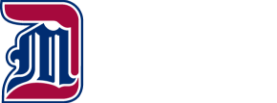Ethics Across the Curriculum
Our faculty adopted as part of our curriculum that an ethics component would be included in every substantive course. This policy underscores and supports the "skills and values" that the MacCrate Report listed for a sound law school curriculum. The Report specifically stated the importance for the coverage of the following types of ethical issues throughout the curriculum:
"ethical issues in drafting; understanding of ethical issues; ethical considerations in trial work; an ability to recognize and rehearse the appropriate resolution of multiple ethical issues of law practice; an ability to communicate more effectively with a client, recognizing the psychological and economic conflicts that lead to ineffective counseling, manipulation, violation of client autonomy, or failure to limit the client to legally permissible goals or means to achieve legitimate goals; and an ability to recognize how the ethics of advocacy and the rhetoric of zealous representation can bind a lawyer in the gathering of information...."
Recommended Policy for Implementation of Ethics Across the Curriculum
- The syllabus for every substantive course should state the specific ethical issues that will be covered during the semester.
- The means for addressing the ethical issues should be planned out as part of the preparation for teaching the course.
- To encourage and assist faculty members, those professors teaching the course in Professional Responsibility will once a year devote a substantial portion of a faculty meeting to a discussion of possible ethical topics that might further stimulate interest among the faculty and answer any questions that might arise.
- Those professors teaching the course in Professional Responsibility will also make themselves available for individual conferences with any requesting professor who seeks advice on formulating an ethical component for a course.
- At the end of each semester no later than when grades are turned in, each professor will fill out and turn in to the Associate Dean a form entitled, “Ethics Across the Curriculum Evaluation Form,” which not only will list the ethical issues covered and the means used to do so, but also will include a self-evaluation of the strengths and weaknesses of the exercise.
- After all of the evaluations are turned in, a special committee of the Curriculum Committee will review these evaluations and make a short written report on the effectiveness of the program and possible ways to improve its implementation.
